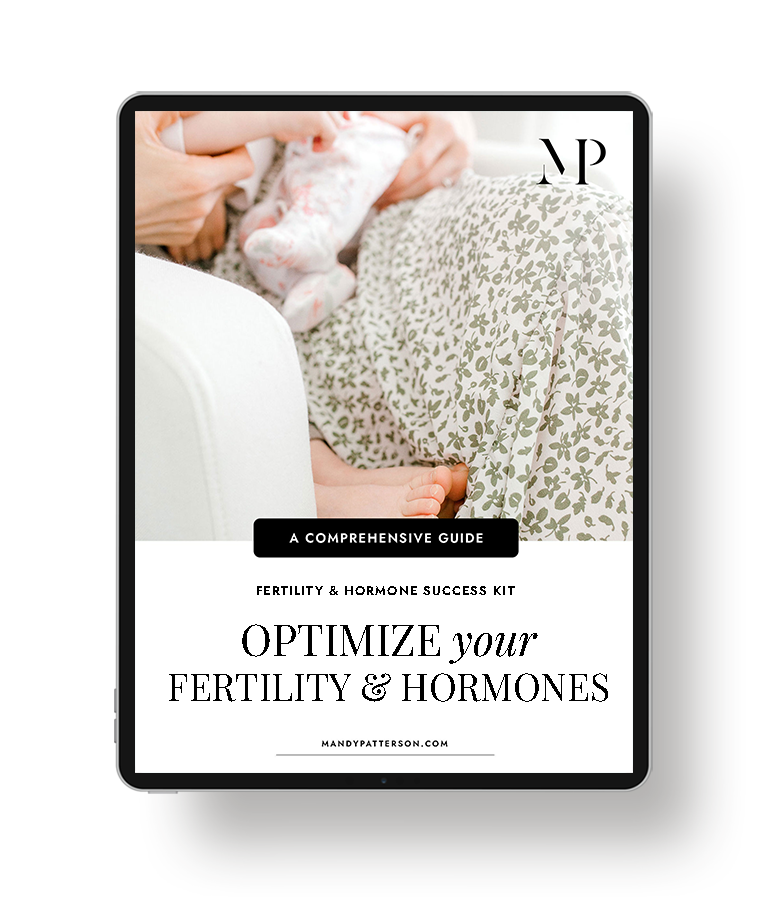The knowledge surrounding epigenetics and how it may play a role in infertility is important for those that have struggled to conceive on their own. Your story doesn’t have to be one of heartache. Unexplained infertility is a painful journey, but it’s not the end of the road. While genetic health is often discussed when diagnosing infertility or unexplained pregnancy loss, few fertility professionals delve into epigenetic issues that may actually be correctable.
Epigenetics and infertility go hand in hand. As genetic testing rises in popularity, the common question I often get is, “Now what?” Due to what we now know in the field of functional medicine, it is no longer sufficient to attribute health concerns to just your genes. I have discussed this in past blog posts but essentially your genes load the gun but your lifestyle choices pull the trigger.
Here is a real life example. In research, two genetically identical mice can look entirely different in color and size based solely on epigenetic manipulation. So, what is epigenetics and how does it play into infertility? And, what do you do with that burning “now what” question after learning about your unique genetic variations?
Keep reading because I’m going to share everything you need to know about epigenetics and infertility.
How do Epigenetics Influence Infertility?
There are multiple ways that genetics can influence infertility. A few of the more well-known ways include missing or mutated chromosomes in the genetic sequence. For example, translocation occurs when some chromosomes are attached at the wrong location, making it impossible to pass on healthy chromosomes. Inversions occur when a chromosome rotates and connects in an inverted manner, changing the genetic code.
These chromosome abnormalities result in a primary infertility diagnosis. They may make conception nearly impossible without advanced reproductive treatment. However, this is very rare. Some of these conditions include Klienfelter Syndrome, Y chromosome microdeletions or genes or Noonan syndrome.
More commonly, you’ll experience genetically linked disorders or medical conditions that lead to challenges with conception. For instance, conditions like cystic fibrosis, endometriosis, or PCOS can make conceiving difficult.
Even if you don’t have a genetic condition, there may be variations in your genes that affect your fertility. These variations may impact factors like the quality of your eggs, how well your cells replicate, and your body’s ability to carry out adequate detoxification. Further, genetic factors are rarely the single cause of infertility. This is why the field of epigenetics can be so important so stay with me.
What is Epigenetics and How Does it Relate to Infertility?
Epigenetics refers to the scientific thinking that many factors can influence your genes’ expression. It is the process in which cells control gene activity without actually modifying the DNA sequence. Simply put, it’s the way your lifestyle or enviornment impacts your genes.
It’s worth reemphasizing that you can have epigenetic influences on your genes. This is regardless of whether you have a chromosomal or genetic disorder. To be honest, this is good news!
Let me explain why this is good news. Some environmental factors that influence epigenetics include diet, nutrition, and lifestyle (aka. exercise/sleep/etc). Past research studies on identical twins has shown that nutritional status, environmental toxin exposure and even life stressors can alter the way genes express themselves. Ultimately, this impacts our overall level of wellness and ability to reproduce.
To simplify this, we can control how our genes express themselves by changing our lifestyles! That’s great news, especially if genes are part of the infertility equation.
Hence, your genes do not have to be your destiny! You have much more control than you think you do.
Which Genes are Impacted by Epigenetic Reactions?

Genetics can influence health outcomes but lifestyle factors can have a much larger role in infertility challenges.
In “Dirty Genes” by Dr. Ben Lynch, there are seven gene variations that can be turned “on” or “off” by your lifestyle. These gene variations have a lot of research behind them and also happen to influence fertility outcomes. When genes get dirtied up by unhealthy lifestyle choices, this is when we can experience health challenges or even infertility. I’m going to explain the three most likely to impact your fertility, but I highly recommend reading “Dirty Genes” to get a fuller view of all seven gene variations.
MTHFR
MTHFR supports methylation, a process essential for genetic expression. When you have one of the two MTHFR gene variants, your entire methylation cycle is disrupted. This can affect antioxidant production, brain chemistry, cell repair, detoxification, energy production, genetic expression, immune response, inflammation, and several other processes.
A few of the ways the MTHFR gene variant can impact fertility include:
- Infertility challenges
- IVF or other advanced interventions are needed to become pregnant or maintain a pregnancy to full-term.
- Excessive menstrual cramping and clots in menstrual fluid
- Presence or history of cervical dysplasia
- Recurrent miscarriages
- History of placental abruption and preeclampsia in pregnancy
- Elevated homocysteine (greater than 12 micromoles/liter)
You can read my personal story with the MTHFR gene variant here. It’s one of the reasons I’m so passionate about teaching epigenetics and how it can relate to successful pregnancy outcomes.
COMT
This gene impacts your ability to process estrogen and certain neurotransmitters like dopamine, epinephrine, and norepinephrine. These neurotransmitters are directly related to your body’s stress response.
The COMT gene is responsible for supporting estrogen metabolism. Variations may cause premature ovarian insufficiency and preeclampsia. Additionally, your body has a harder time metabolizing and removing stress hormones.
DAO
DAO is an extremely important enzyme that your body uses to break down histamine from food. If you have a DAO gene variation you will likely have an oversensitivity to histamine. This is important to know because histamine affects your immune response and gut health.
An oversensitivity to histamine presents symptoms like abdominal pain, itchiness or sweating after eating, and other allergy-like symptoms.
In terms of fertility, the DAO enzyme and histamine balance are crucial for an uncomplicated pregnancy. Low activities of the histamine-degrading enzyme DAO might indicate high-risk pregnancies.
How to Leverage Epigenetics To Combat Infertility
Here’s the answer to your question, “Now what?” You’ve discovered you have a gene variation but have no idea where to go next. The great thing about epigenetics is that it means you can control your gene expression. You can optimize your genes to combat infertility.
While it’s important to have a unique protocol that addresses the story your specific genes tell, there are a few universal principles you can implement. These lifestyle changes will help your genes work smarter, not harder.
- Avoid endocrine-disrupting chemicals and other toxins
- Tune into your body and emotions and stop ignoring symptoms.
- Feed your body nutrient-dense foods.
- Make sure your vitamin and mineral needs are met.
- Get enough high-quality sleep
- Breath deeply and work on stress management.
- Get regular physical activity.
It doesn’t have to be a complicated routine. Small, simple changes can lead to big shifts in your overall health. If you need help getting started reach out to me! I use the 3×4 genetic testing kit in my practice and I’ll help you create and implement a personalized protocol based on your genetic story.
Let me leave you with this seed of hope, that you can optimize fertility using epigenetics. Your genes are not your destiny, and your story doesn’t have to end in heartache.

















